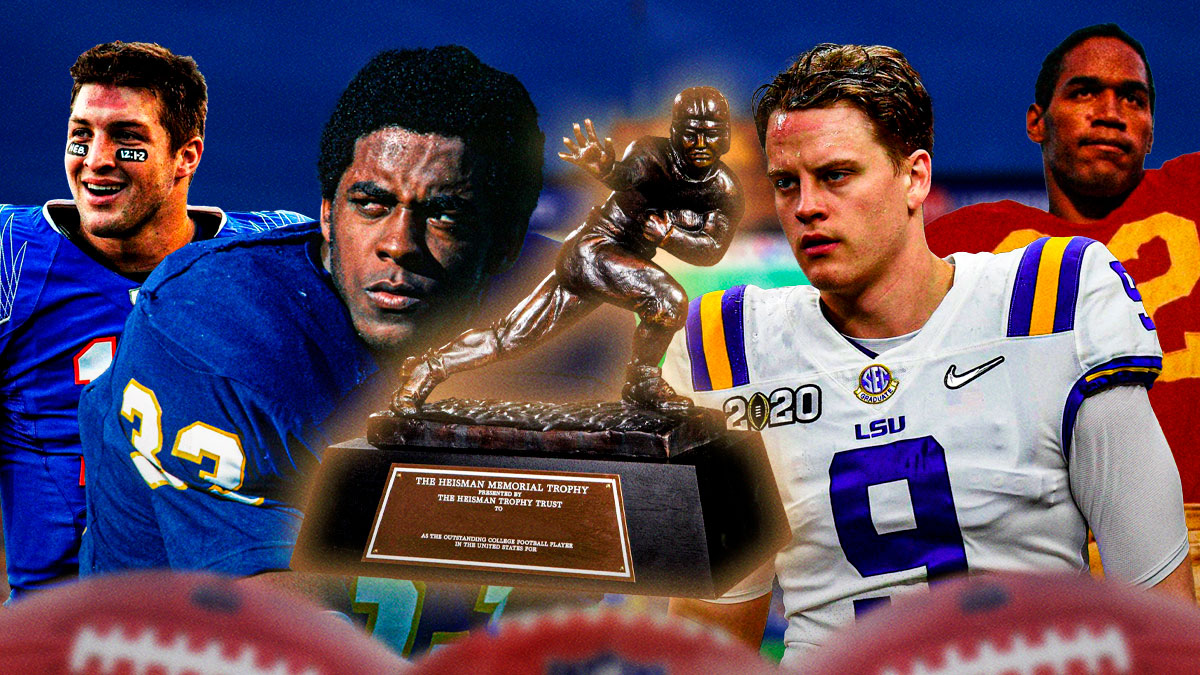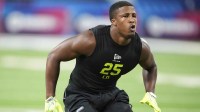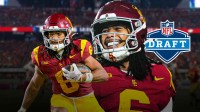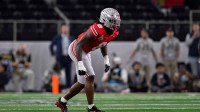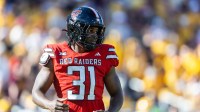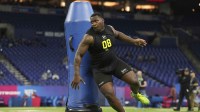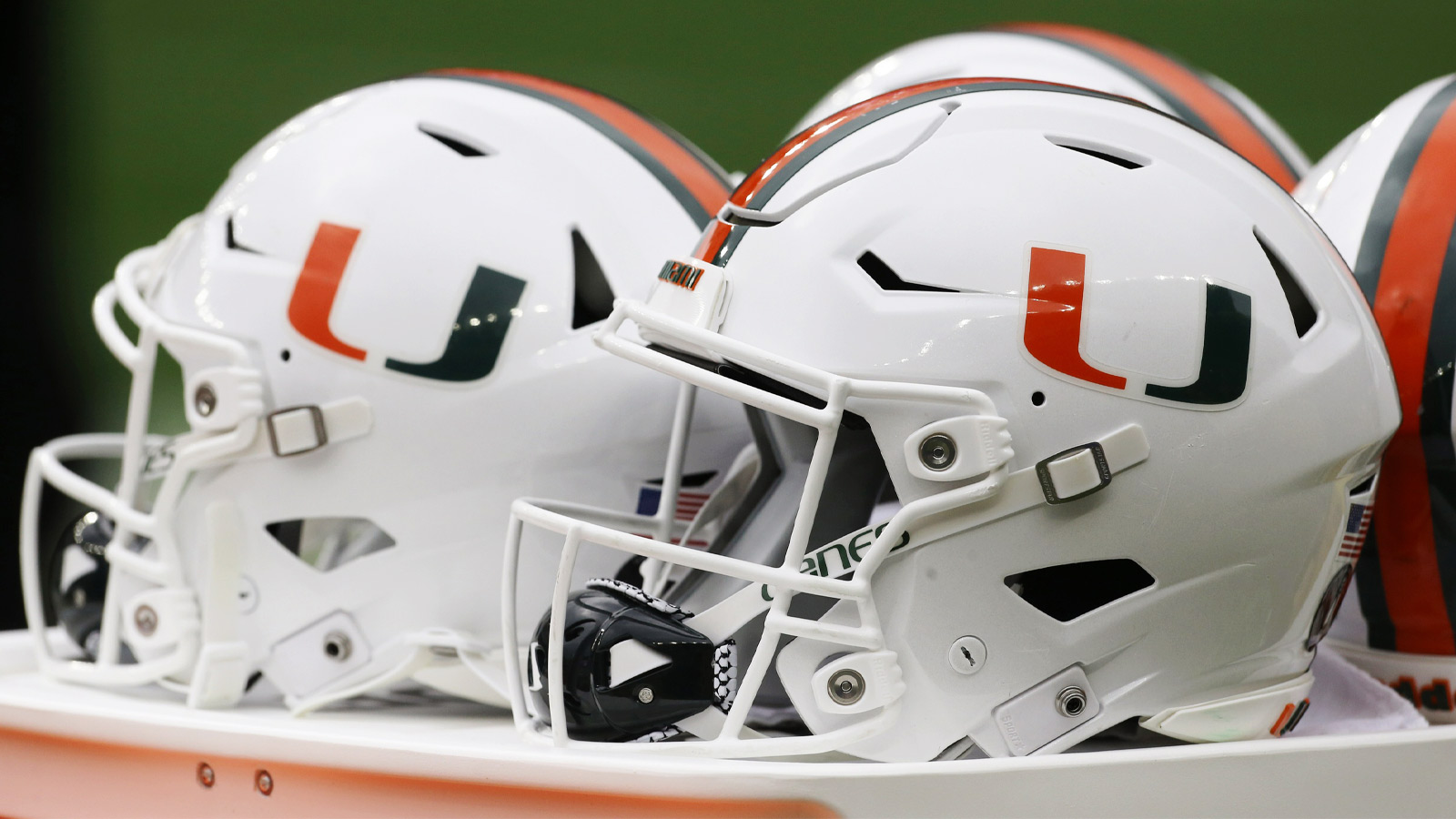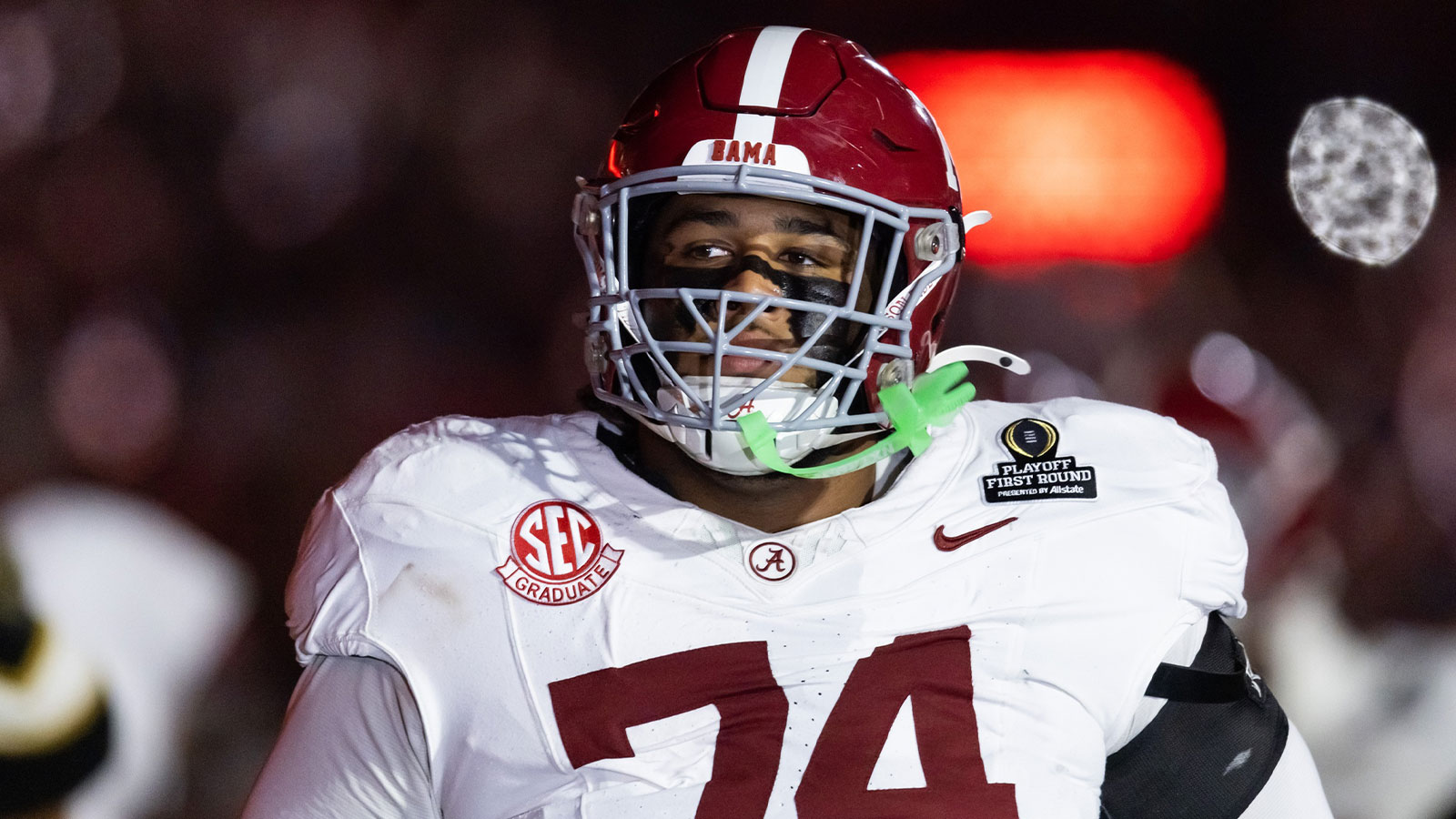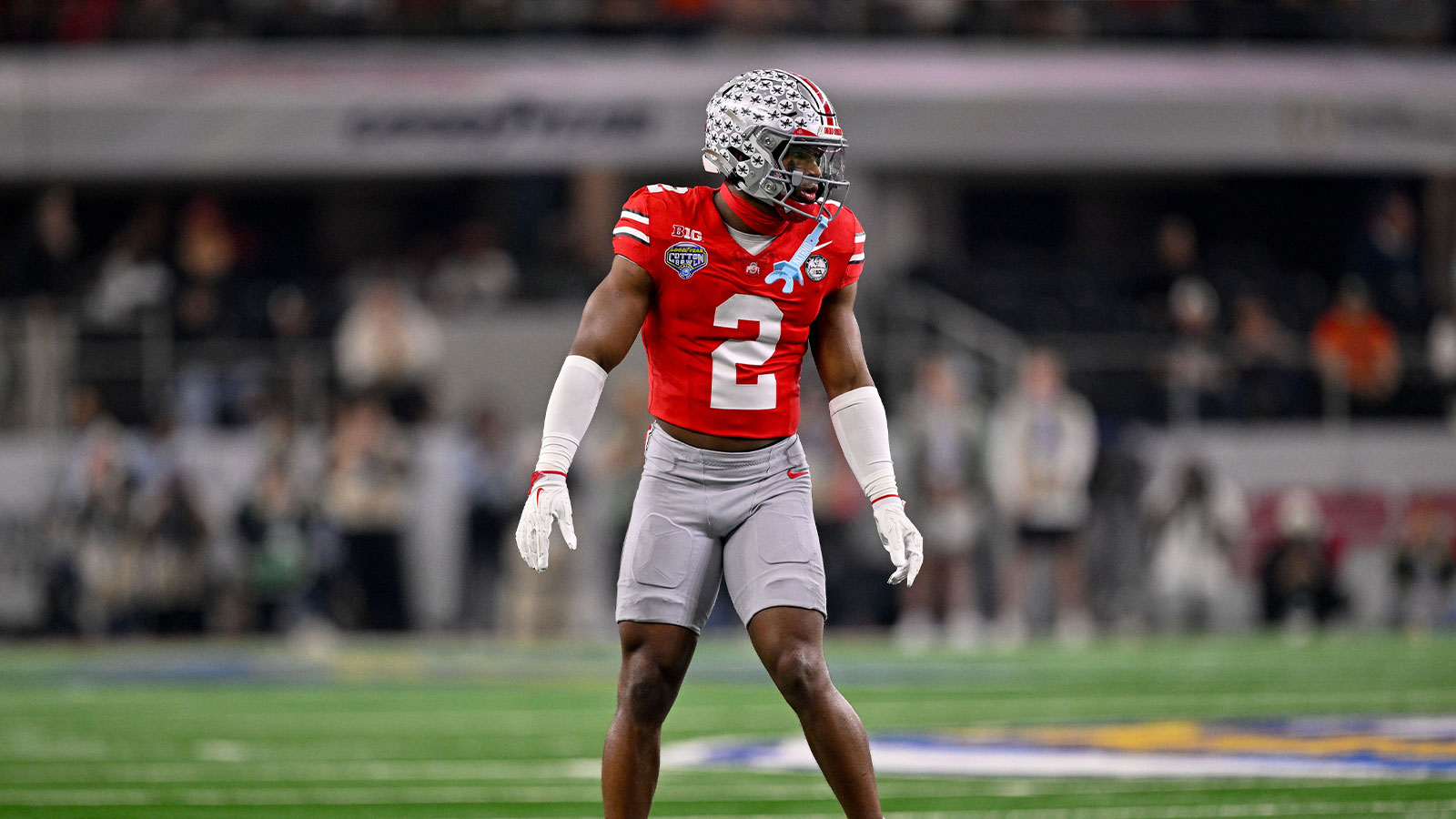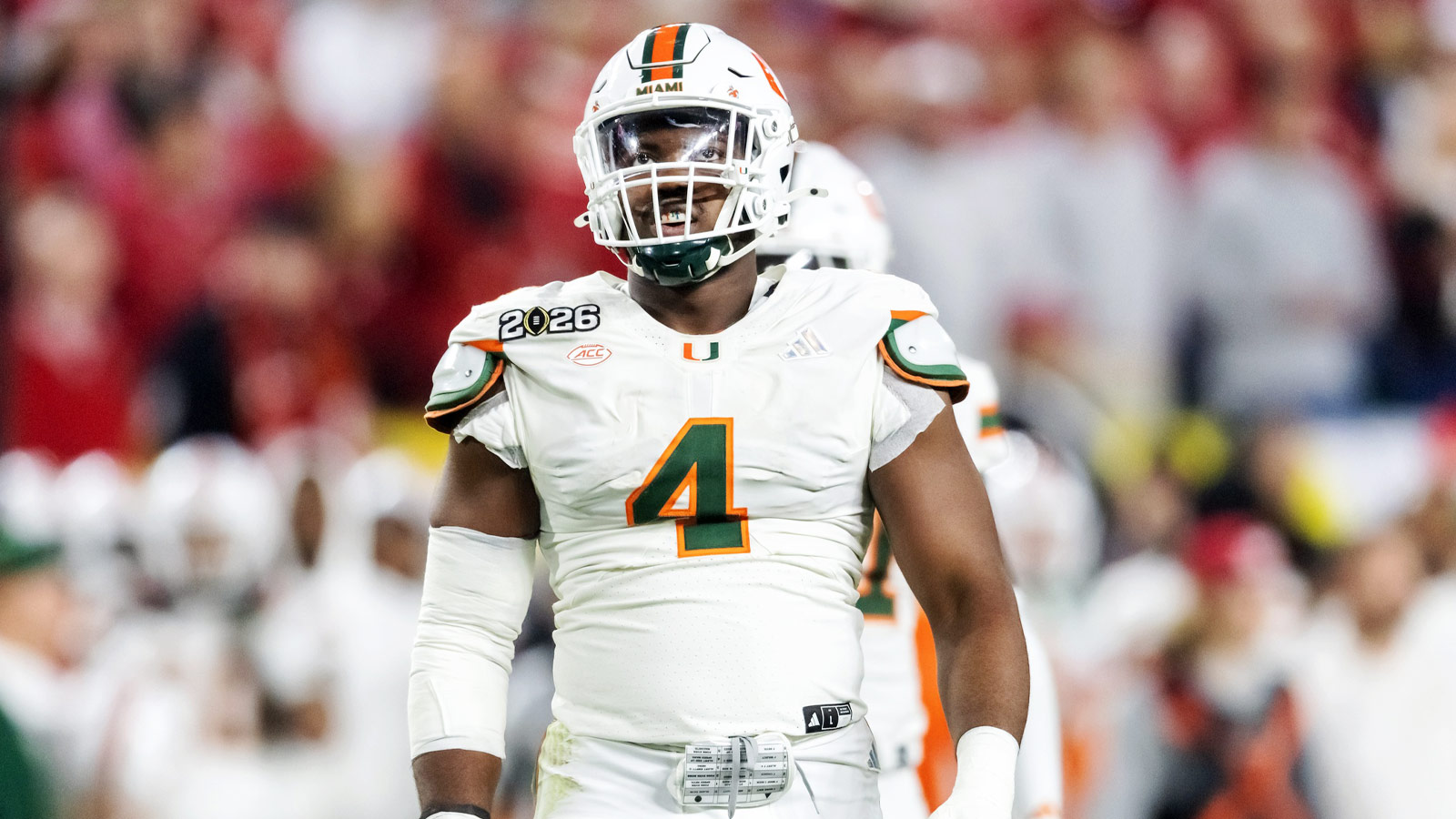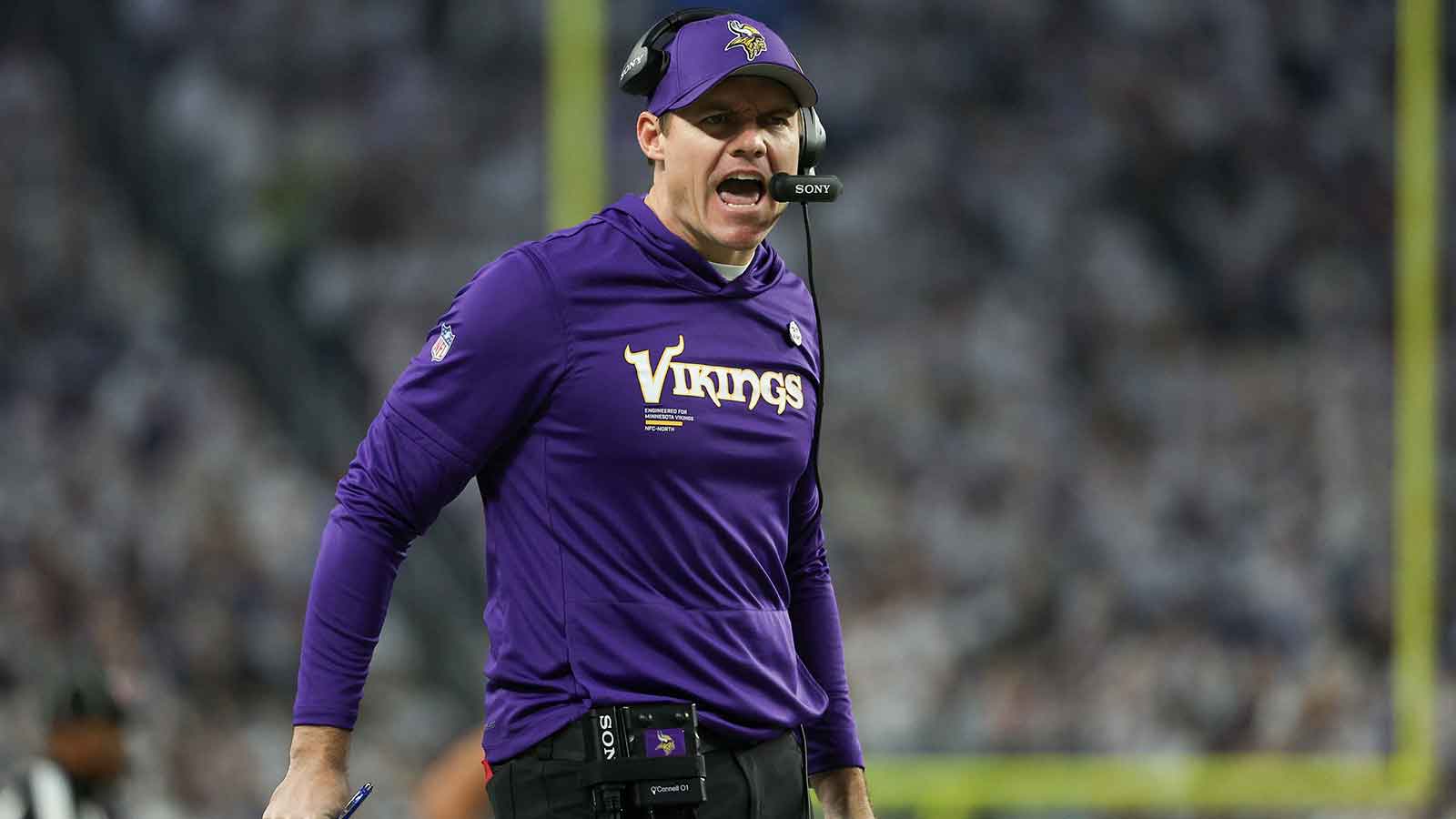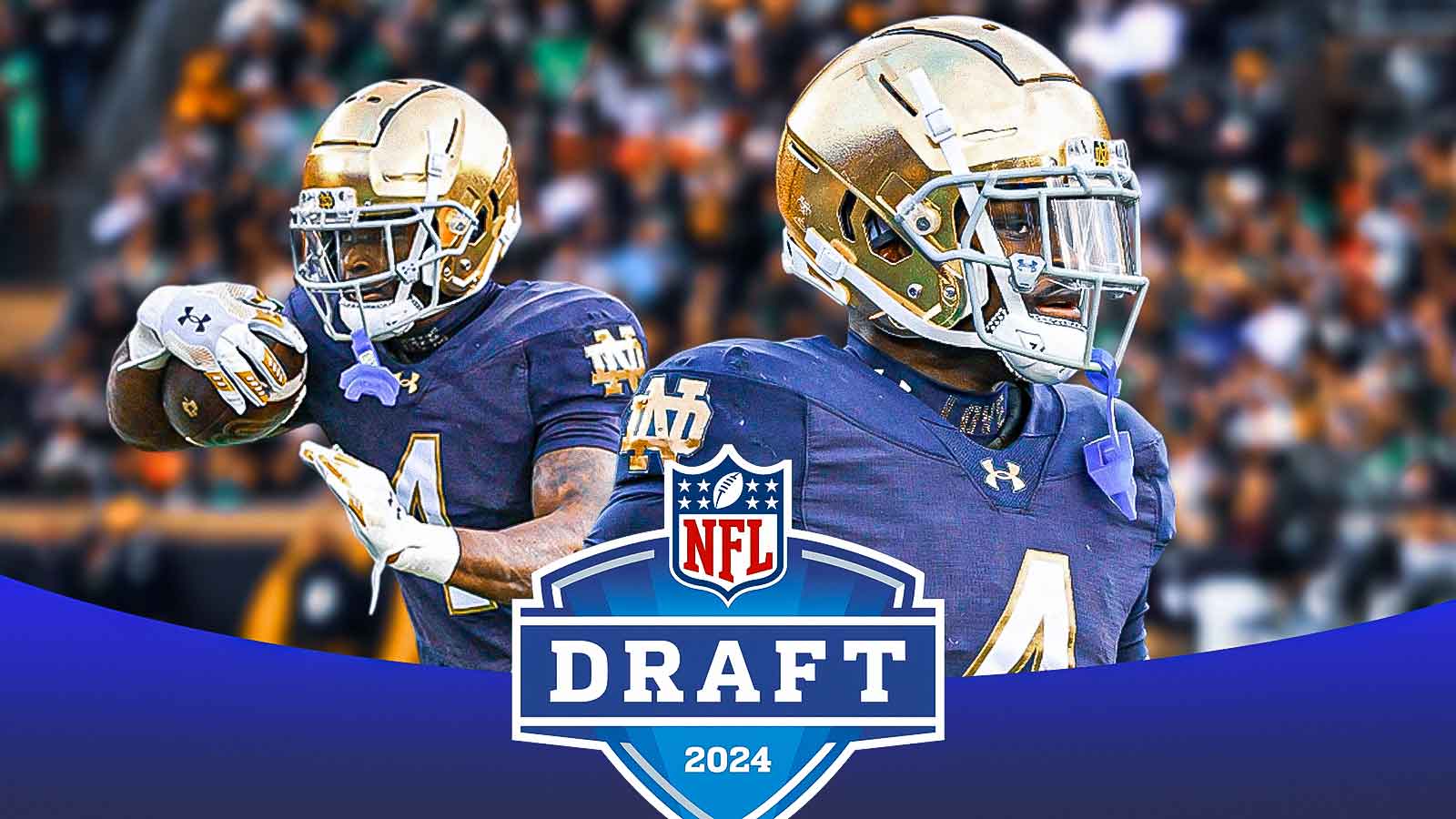The Heisman Trophy proves who the best player in college football is, and it is one of the most prestigious awards in sports, with some of the greatest football players winning the award. With around 20,000 scholarships for Division 1 football players, every Heisman-winning season is incredibly impressive. Some Heisman winners certainly had better seasons than others, though.
The 2024 race for the Heisman Trophy is one of the most intriguing ever. Travis Hunter is currently the frontrunner to win the award. The Colorado superstar has a case as both the best receiver and the best cornerback in college football, and that type of two-way stardom hasn't been seen in a very long time. His competition for the award is Ashton Jeanty. The running back would break barriers if he were to win the Heisman because he plays for a mid-major program (Boise State).
We already ranked every Heisman winner of the 21st century, but the Heisman Trophy was handed out as far back as 1935. So, check out the gallery to see who has a claim to the 10 best Heisman Trophy-winning seasons in college football history.
1. Barry Sanders, Oklahoma State – 1988
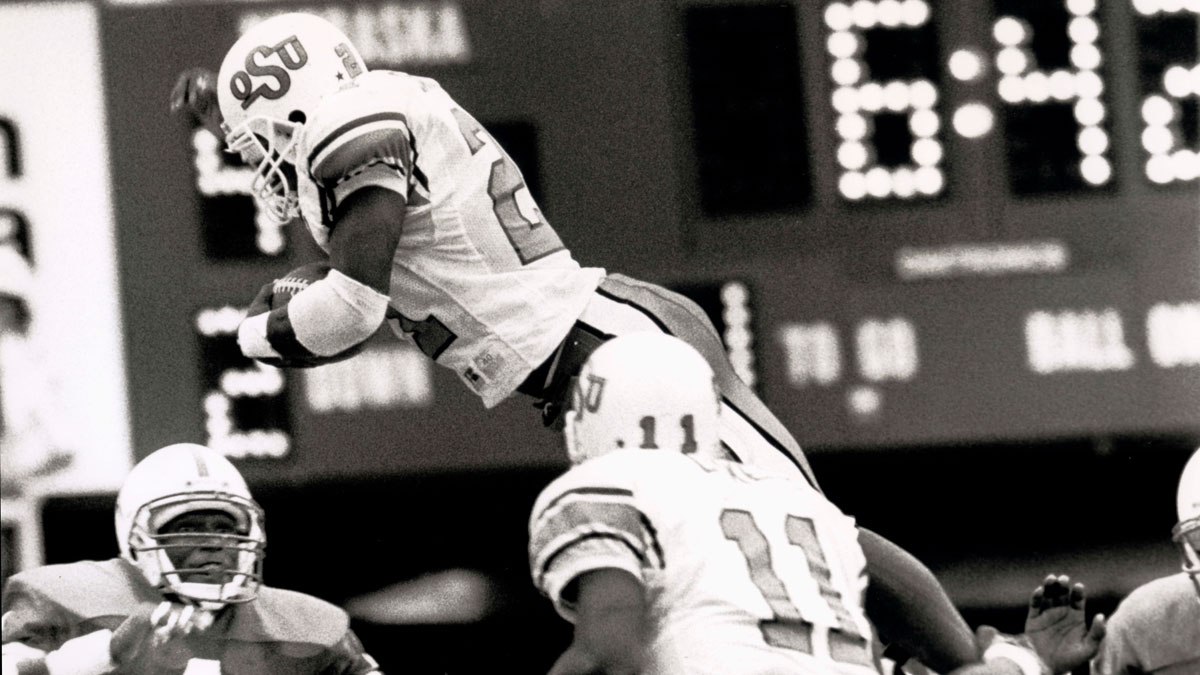
Barry Sanders didn't do a whole lot in his first two seasons at Oklahoma State, but in 1988, he burst onto the scene with by far the best single season in college football history. The running back exploded to 2,628 yards and 37 rushing touchdowns the year that he won the Heisman Trophy, both of which still stand as single-season NCAA records.
Sanders was unstoppable on the ground. He averaged a staggering 7.6 yards per carry and 238.9 yards per game. Those numbers would be solid for entire offenses, including the passing game, let alone just from one player out of the backfield. Sanders even ran for over 300 yards four times.
To add to his unbelievable season as a ball-carrier, Sanders even had a productive year returning kicks. Despite carrying the ball 344 times, Oklahoma State had Sanders work as a return man, and he averaged 20 yards per carry en route to 515 more yards and two more scores. All of Sanders' yardage combined amounted to 3,248 all-purpose yards, which was the record for decades to follow. All of these jaw-dropping statistics don't even include the 222 yards and five scores Sanders racked up in the Holiday Bowl, as those numbers don't count towards official NCAA stats, but they happened nonetheless.
Sanders' 1988 campaign is not only the greatest season in college football history, but it goes toe-to-toe with the best seasons in all of sports history. That includes Wilt Chamberlain's 50.4 point-per-game season, Wayne Gretzky's 92-goal season, and Tiger Woods' 2000 year on the PGA Tour.
2. Joe Burrow, LSU – 2019
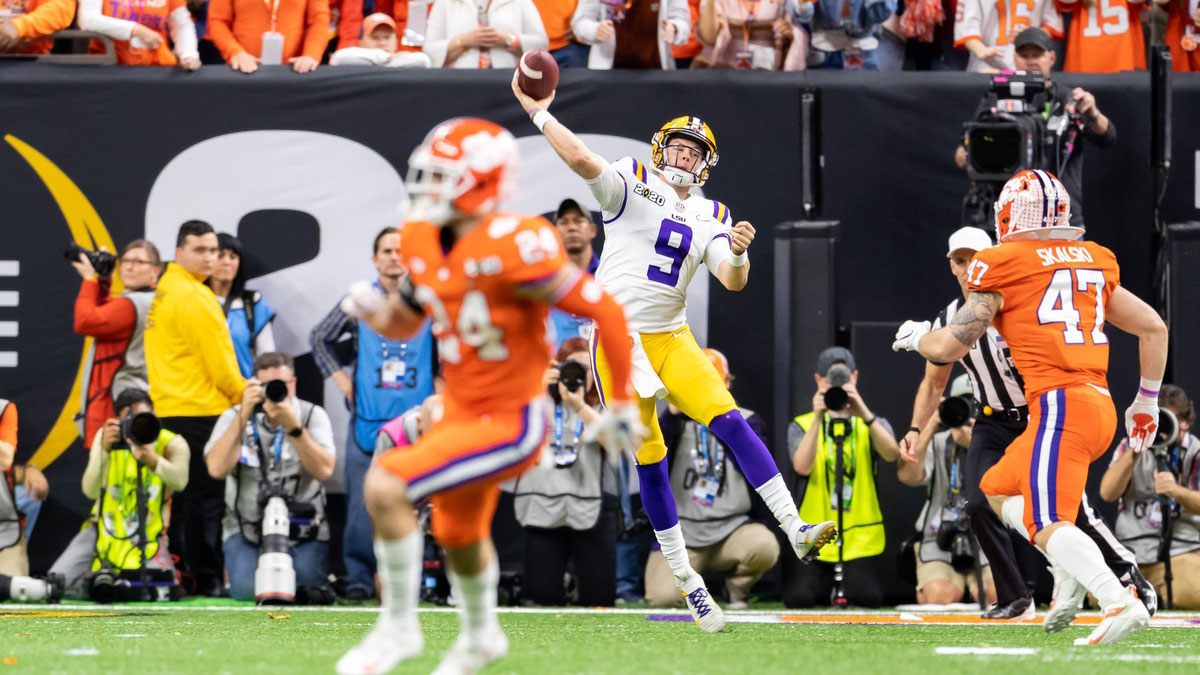
The same way that Sanders put up unrealistic numbers as a rusher in 1988, Joe Burrow's passing statistics from 2019 just don't seem real. With an elite receiving corps around him (Ja'Marr Chase, Justin Jefferson, Terrace Marshall Jr.), Burrow was able to throw 60 passing touchdowns. That is the most ever by a Heisman winner, and it only trails Bailey Zappe all time (a player who played lesser competition at Western Kentucky).
Burrow's insane statistics don't stop there. He is also the Heisman leader for single-season passing yards with 5,671, and the gunslinger's passer rating of 202 was even a record at the time.
The monstrous season culminated with a National Championship victory (over the defending champions), too. Like Sanders, Burrow's collegiate career didn't start out hot, as he had to transfer from Ohio State before finding success at LSU. It is all about how you finish and not how you start, though, and Burrow ended his collegiate career with the best quarterback season ever.
With 93.8% of the Heisman votes going his way, Burrow won the award by the biggest landslide ever. Voters recognized how historic this season was, and it looks just as impressive in hindsight. Even Burrow's run in the College Football Playoff will be remembered as one of the best in that iteration of the postseason format ever.
3. Marcus Allen, USC – 1981
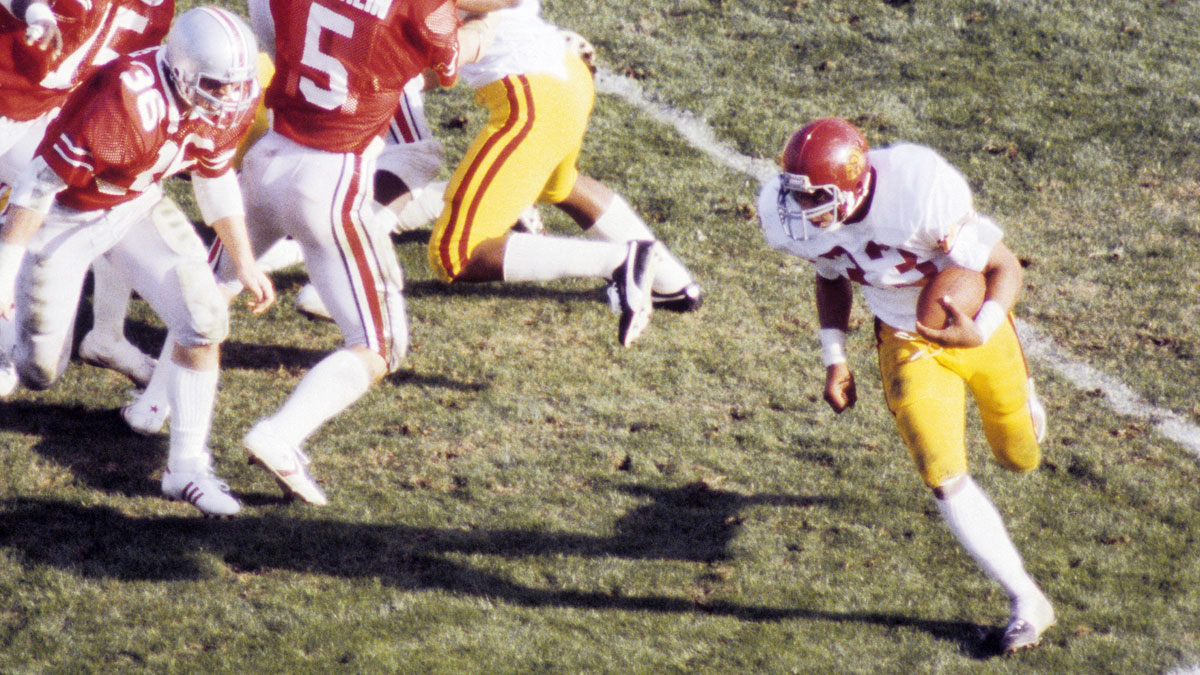
USC leads all schools with eight Heisman Trophy winners. The best of the bunch was Marcus Allen, and that is saying something, because multiple other Trojans had a case for this list. Allen's senior year was unprecedented, as he became the first 2,000-yard rusher ever when he ran for 2,342 yards.
Allen was a big game waiting to happen. He rushed for over 200 yards on five separate occasions, which still stands as a record. USC almost exclusively used Allen and the running game to find success, but he was actually their go-to option in the passing attack, too. Although his 29 receptions aren't impressive by today's standards for pass-catching running backs, that was an impressive receiving season for players out of the backfield at the time, and Allen actually led his team in catches.
4. Mike Rozier, Nebraska – 1983
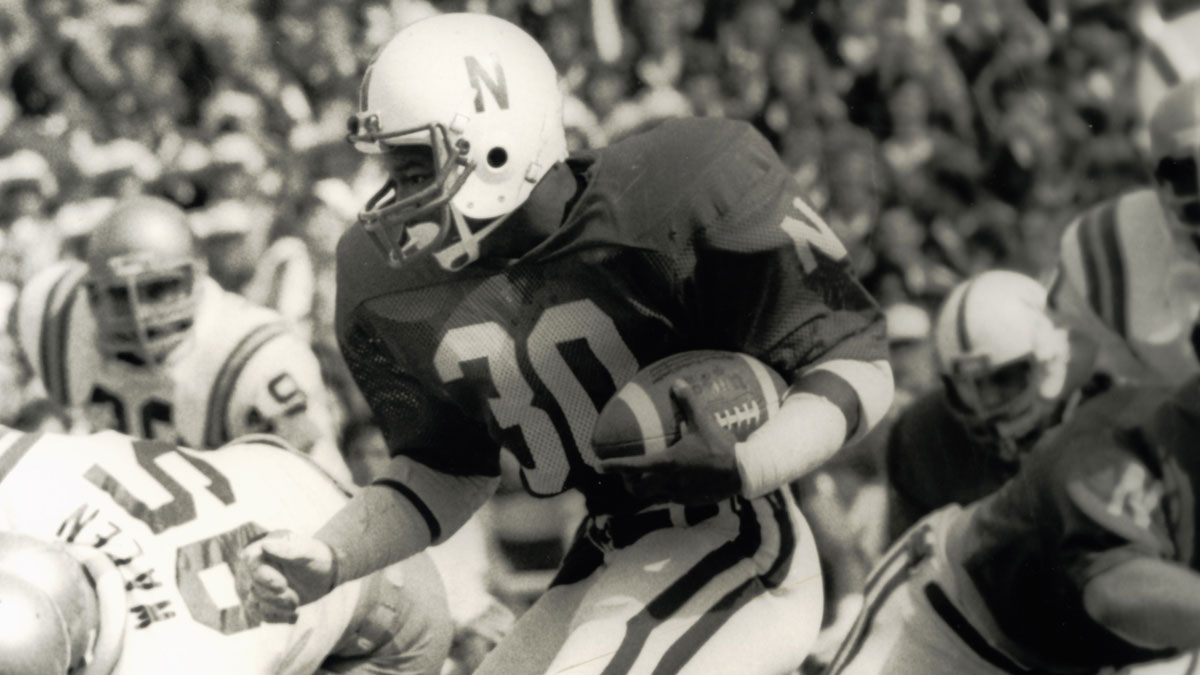
Back in the day, Nebraska was one of the biggest powerhouses in college football, and Mike Rozier was the unstoppable force on the Big Red Machine. The running back ran for over 100 yards in every regular season game in 1983 en route to collecting the Heisman Trophy.
His 2,148 yards and 29 touchdowns are among the best marks in college football history. Unfortunately, Nebraska lost in the Orange Bowl by one point and missed out on a national title because of it. That made the '83 Cornhuskers one of the best non-championship teams ever. Even so, the team was where they were because Rozier was so dominant.
5. Herschel Walker, Georgia – 1982
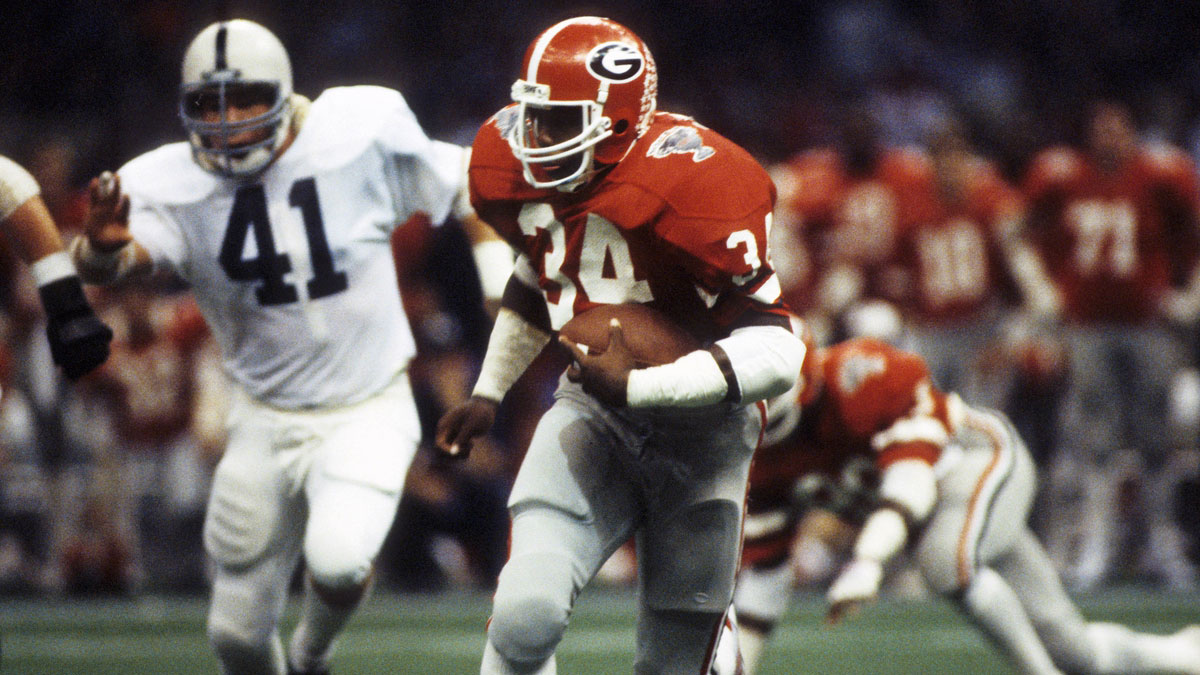
We have Herschel Walker listed as the greatest player in college football history because of his entire three-year career at Georgia, but his Heisman-winning season in 1982 certainly plays a big part. The Georgia star actually had a better season the year prior, but it wasn't enough to beat out Marcus Allen in Heisman voting. He was deservingly awarded the trophy in 1982, though.
That season, he had 1,752 yards and 16 touchdowns on the ground to get his career totals up to 5,259 yards and 49 touchdowns. His impressive Heisman season came despite a slow start. A broken thumb limited Walker to 20 yards in the opener and forced him to wear a cast for the next couple of games.
Walker makes three straight players on this list who won the Heisman in consecutive years in the early '80s. It was the golden age of running backs in college football, and Walker was a big reason why. He bolted onto the scene as a freshman and had a great sophomore campaign, but he will forever be remembered for his Heisman-winning junior season.
6. Tony Dorsett, Pitt – 1976
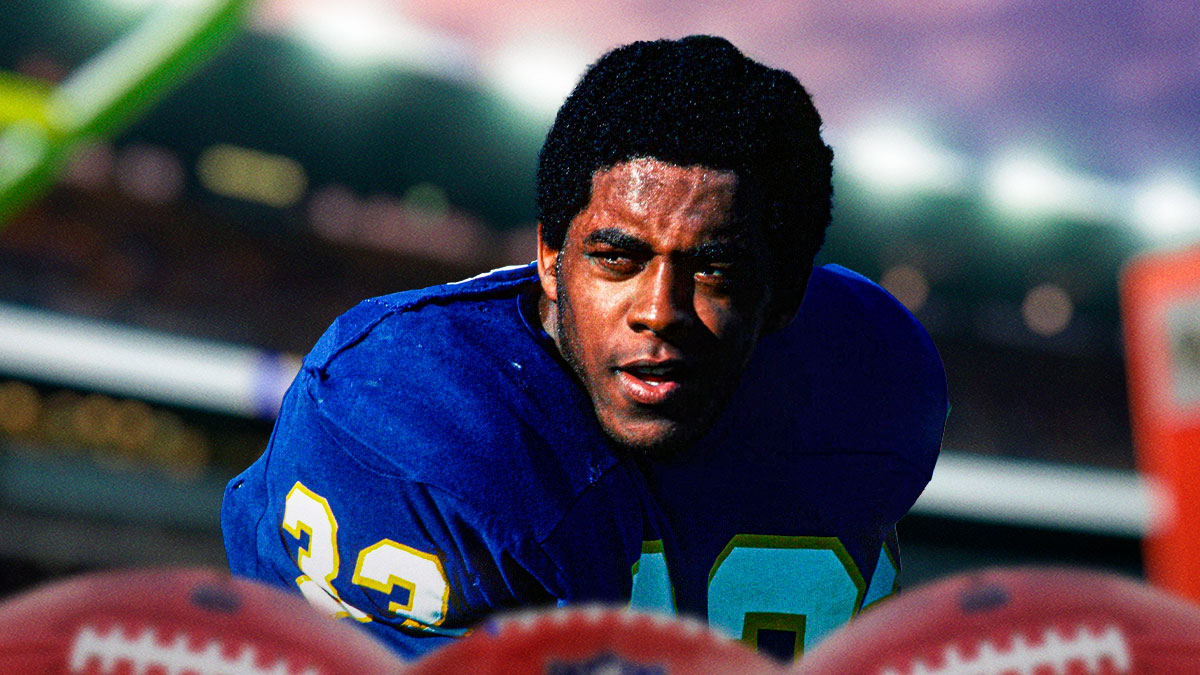
Tony Dorsett was an easy choice for the Heisman in 1976. This season, he became the all-time leading NCAA rusher en route to leading Pitt to a National Championship. Dorsett was known for his speed out of the backfield, and in the year he won the Heisman Trophy, he sprinted his way to 1,948 yards and 21 touchdowns.
7. Cam Newton, Auburn – 2010
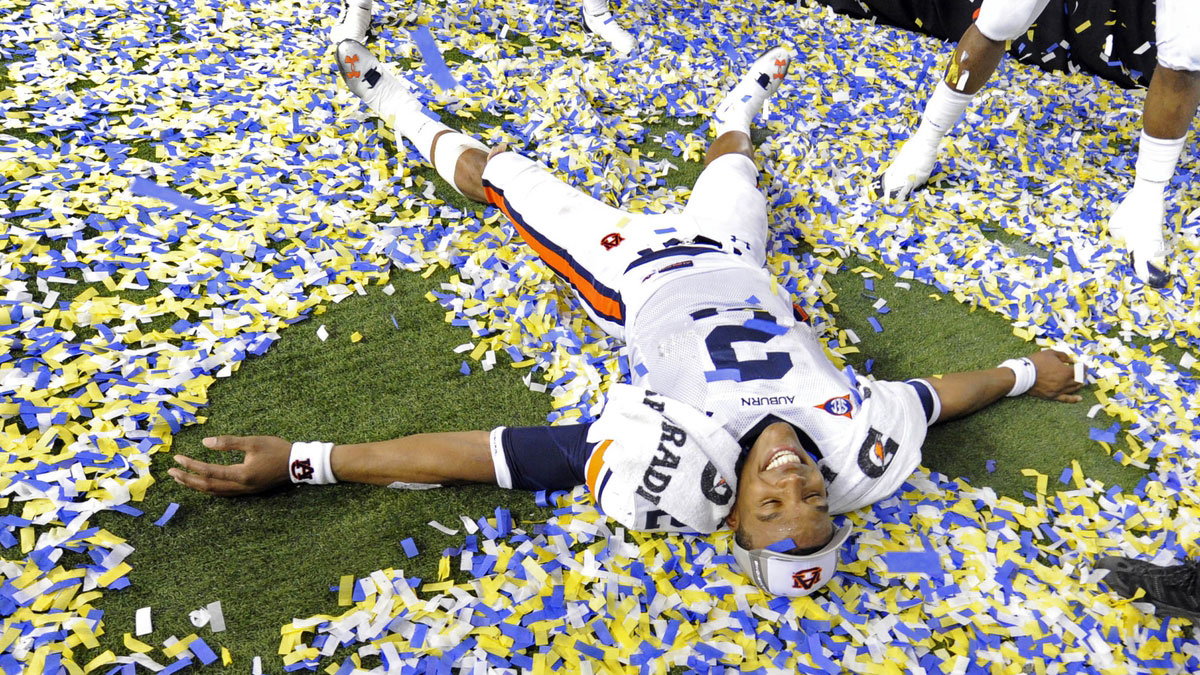
Although Cam Newton started his career as a backup behind a Heisman winner, and he eventually played JUCO ball, he ended his career at Auburn with one of the best single seasons in college football history. Like Tim Tebow before him, Cam Newton was a 30-plus touchdown, 20-plus rushing touchdown player, but his statistical masterclass ended with his team (Auburn) winning the national title.
The 24-0 “Camback” against Alabama will be known as one of the greatest comeback wins in the history of the sport, and Newton was feared because he looked like a middle linebacker mixed with a running back mixed with a basketball player playing quarterback. Heisman winners are supposed to carry immense value for their teams, and Newton did just that, as his Auburn team was heavily reliant on him carrying a big load. They would have been nowhere near National Championship status without their quarterback leading the way, whereas a lot of the other best Heisman winners were on otherwise stacked rosters.
8. Tim Tebow, Florida – 2007
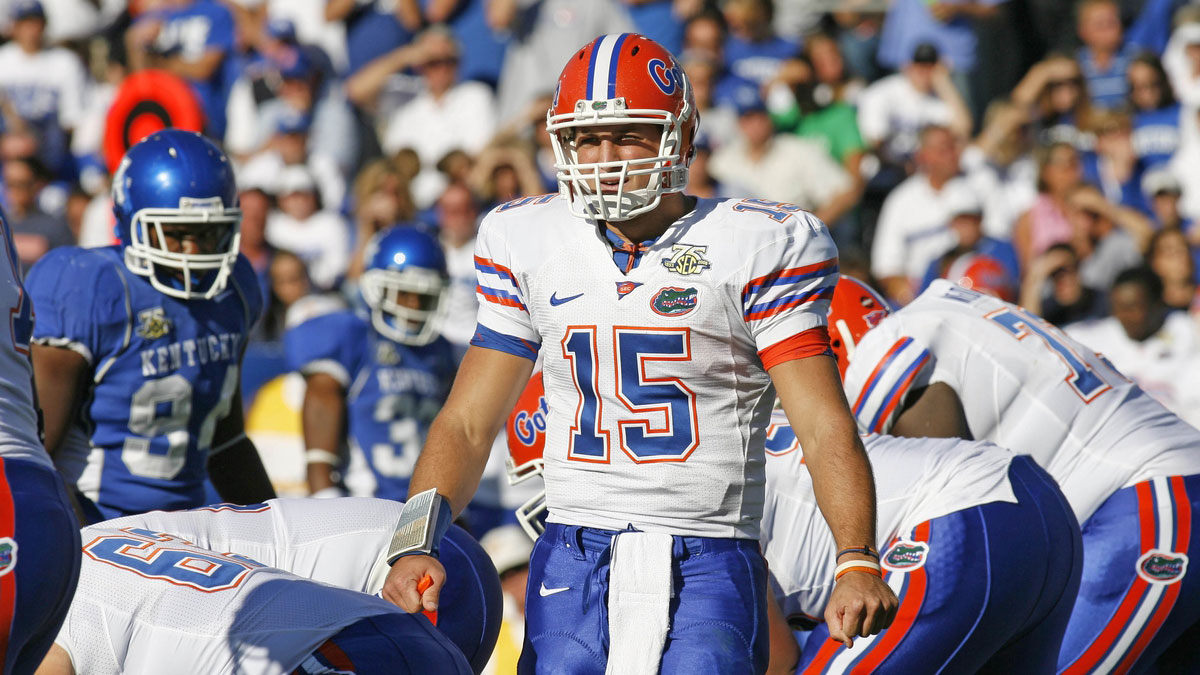
Ironically, Tim Tebow started ahead of Cam Newton at Florida before Newton transferred to Blinn College (and then Auburn). Tebow is perhaps the most iconic player in college football history. While his Heisman season was sandwiched in between two National Championships, Tebow's best year individually was 2007.
In fact, Florida was so good that he became the first underclassman to ever win the award, despite a stigma against young players being named the Heisman winner. Tebow had 3,286 yards and 32 touchdowns through the air, but he also added 895 yards and 23 touchdowns on the ground. That made him the first player ever with 30-plus passing touchdowns and 20-plus rushing touchdowns, which really revolutionized the quarterback position.
Tebow's Florida teams are well-known for having all of the talent but having a bunch of off-the-field issues. If it wasn't for the leadership of Tebow, it wouldn't have worked. The quarterback was willing to do whatever it took to win, and that was evident when he stepped foot on the field. Tebow did that all while captivating the nation and becoming a all-around sports superstar, too.
9. O.J. Simpson, USC – 1968
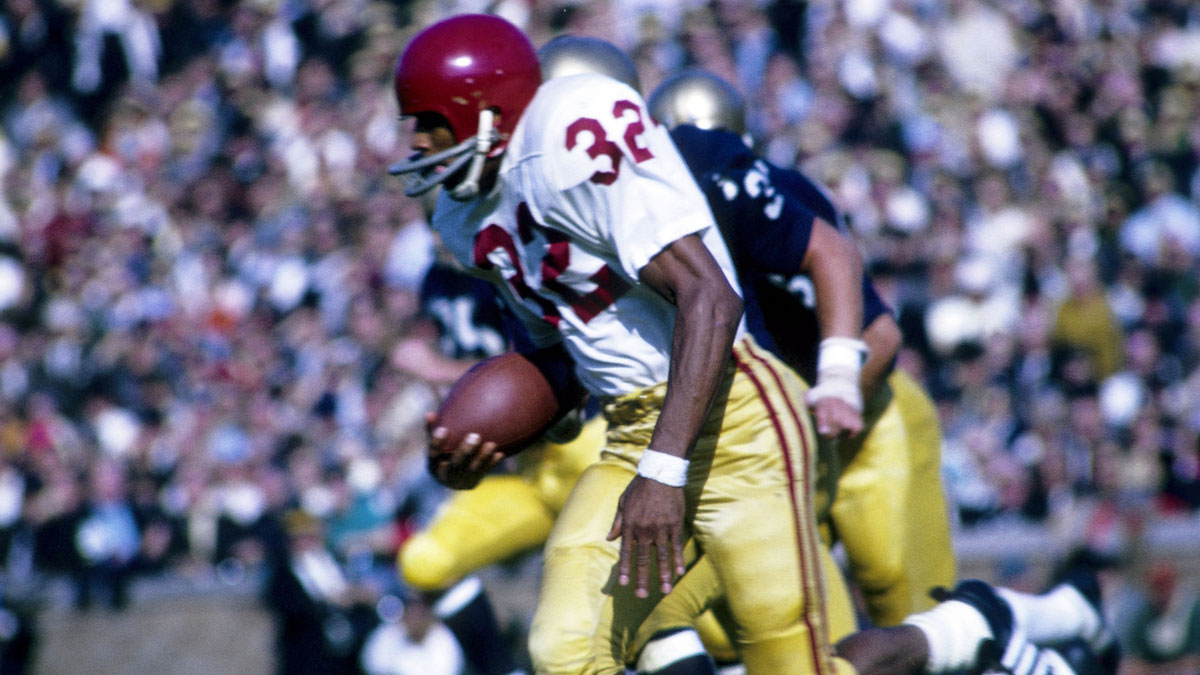
O.J. Simpson is much more known for the things that happened after his football career now. The former USC running back and the NFL's first 2,000-yard rusher, of course, became notorious for arguably the biggest court case in American history, where he was accused of murdering his wife, Nicole Brown, and her friend, Ron Goldman.
None of that matters for this list, though, as we are only here to look at the best Heisman seasons ever, and Simpson certainly qualifies. Many think that Simpson should have won the Heisman Trophy in 1967, but he certainly couldn't be denied in 1968. He still holds the record for most first-place Heisman votes (855) because of this season. Simpson rushed for 1,709 yards and 22 touchdowns in total.
10. Ricky Williams, Texas – 1998

Ricky Williams ended his college career as the all-time leader in career rushing yards (although that record was broken by Ron Danye the following season). That means that Williams was impressive throughout his tenure at Texas, but he took things to a whole new level during his 1998 Heisman run.
Williams ran for 2,124 yards and 27 touchdowns. He twice scored six touchdowns in a game, and he did it all with an electrifying and entertaining play style. Williams was known to break off huge runs thanks to his breakaway speed, but he also had plenty of power.

